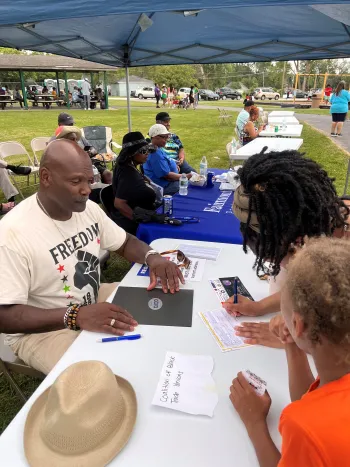Retiree Notes: Congressional Democrats fight for Social Security boost
Congressional Democrats fight for Social Security boost
A new bill introduced by Democrats in Congress aims to make significant changes to how the Social Security Administration calculates cost-of-living adjustments (COLAs) that would protect seniors from rising prices by expanding benefits.
Currently, the Social Security COLA is based on the Consumer Price Index for Urban Wage Earners (CPI-W), which reflects everyday spending for food, housing, transportation and consumer goods.
Under the new bill, sponsored by Rep. Ruben Gallego (D-Ariz.) and Sen. Bob Casey (D-Pa.), the COLA would instead be based on the Consumer Price Index for Americans aged 62 or older (CPI-E), an inflation measure that more accurately. reflects the costs incurred by older adults. Medical expenses, an increasing burden on older people, are weighted more heavily in the CPI-E than in the CPI-W.
“Switching to this inflation measure would give seniors much-needed relief from high inflation,” said Larry Brown, president of AFSCME Chapter 31 Retirees. “The bottom line is that it’s a much fairer way to calculate COLAs and would result in more money in the pockets of Social Security recipients.”
If passed, the bill would help many older adults afford necessities like food, medication and clothing because current Social Security benefits are not keeping up with rising costs.
“It’s important that the COLA reflects how inflation impacts seniors so that we can pay our bills and our monthly Social Security checks stay effective,” Brown concluded.
Retirees lobby for home care workers
In May, AFSCME retirees joined the Illinois Alliance for Retired Americans at the Capitol in Springfield for a rally to demand a $20 per hour minimum wage for home care workers in the Illinois Community Care Program (CCP).
The CCP is a public benefit program offering in-home and community-based services for qualified senior citizens aged 60 and up as an alternative to premature nursing home placement.
There are 12.1 million hours of home care services that Illinois seniors should receive but don’t because the program is severely short-staffed—and low pay is to blame.
The budget passed by the General Assembly did raise the minimum wage for CCP home care workers to at least $18 an hour starting January 2025. AFSCME retirees will continue to fight to ensure that those assisting them with home care services are paid a living wage.
Get ready to vote!

Seniors turn out to vote in higher numbers than other population groups—9% higher in the last presidential election. It’s the role of every retiree activist to not just vote but to bring as many of their fellow seniors along with them as possible.
Retirees like Herbert Hughey, president of AFSCME Retirees Sub-chapter 73 in Joliet, know how important it is to register as many voters as possible. He was out with his fellow retirees at Joliet’s Juneteenth Festival to register community members.
“In many countries, the average person still has no ability to elect their leaders,” Hughey said. “Voting should be seen as a privilege that we exercise with pride. We want to maintain our democracy and elect lawmakers that stand up for the working class.”
That sentiment seemed to resonate with many festivalgoers, Hughey said.
There are more ways to vote than ever before, including by mail.
See important voting dates below:
WEDNESDAY, AUGUST 7 – FIRST DAY TO APPLY TO VOTE BY MAIL. Starting today, any registered voter presently within the confines of the United States may make application by mail or in person to the election authority for an official vote by mail ballot. Please note that mailing and delivery of ballots does not begin until Thursday, Sept. 26.
THURSDAY, SEPTEMBER 26 – FIRST DAY OF EARLY VOTING
THURSDAY, OCTOBER 31 – LAST DAY TO REQUEST BALLOT TO VOTE BY MAIL
TUESDAY, NOVEMBER 5 – ELECTION DAY. Voting at polling locations. Mail-in ballots must be postmarked no later than November 5, and will be accepted for a two-week period.
